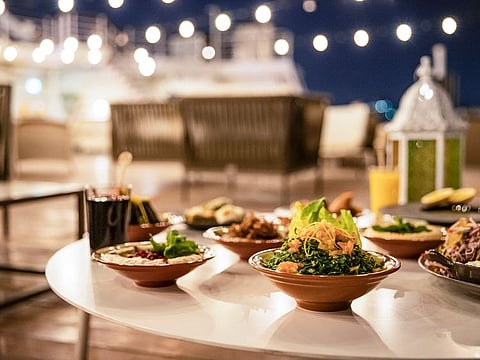Ramadan — a time of grace and spiritual fervour
Our spirit is empowered to soar ever closer to all that is divine and transcendent

That is how it’s always been, over the last millennium and a half, through lean years and fat years, through halcyon times as through times of tribulation: Ramadan would endure, come what may, as the holy month during which Muslims engage their Creator in self-conscious dialogue, emerging from the experience richer, more ennobled beings.
It is a month at once sombre and jolly, imbued with both reflection and abandon, fast and feast. Ramadan, in short, is a magical time in the life of Muslims — including unobservant Muslims, a mostly cold-shouldered club to which this columnist shamefacedly belongs — when the whole world seems as suffused with, well, shall we say, good vibes, and a Muslim’s spirit is empowered to soar ever closer to all that is divine and transcendent.
We do, of course, feel a sense of spiritual dislocation during this year’s Ramadan, as we did during the one that preceded it. In the struggle against that puny monster we have come to call Covid, there are prohibitory rules we are mandated to follow, among them adherence to social distancing, a convention that clearly cramps the very ethos of Ramadan’s rituals — rituals anchored in sociability, comradeship, togetherness and, above communal prayers and communal iftars.
An utterly congenial time
Imagine, tables of compassion, those communal — and utterly congenial — charity iftars where strangers would break bread together at free meals, on long tables, served in the street, are called off this year as they were the last. And well they might.
Let’s face it, in countries experiencing a surge in infections, communal rituals clearly stoke a further surge. During Ramadan in Pakistan last year, for example, new-case numbers jumped from less than 800 a day to more than 6,000 a day a few weeks after the holy month ended, with officials rightly attributing the increase to ordinary Pakistanis’ defiance of decreed Covid restrictions.
Still, our hopes that Ramadan will deliver what it traditionally delivers each year, Covid or no Covid, are never dashed. It remains the holiest month in Islamic culture — a month, moreover, during which the Quran was handed down to our Prophet (PBUH). It remains a time of piety, self-reflection, penance, gifting and charity, when God’s mercy is shown aplenty, sins are forgiven and supplications are accepted.
Here’s a personal aside. I have lived in non- Muslim milieus virtually all my adult life — in England, Australia, France and now the United States — yet, given the fact that I had made my original leap to a maturing consciousness in the old country, I still find this holy month, I say, magical, a time whose teleological spirit never fails to insinuate itself into my human being, as if to regroup it, enabling me each year to learn anew how to be human. And to learn anew how to be human is to learn anew of His presence in our quotidian lives.
Rituals of the holy month
You’re worried that the dynamic of consumerist culture has, willy-nilly, as it were, reinvented, reinterpreted and realigned our Ramadan rituals, thus leading to their debasement, as has reportedly happened in several Muslim societies? Forget about it! Rituals of the holy month of Ramadan, like those, say, of the hajj (the annual pilgrimage to Mecca) and the az’an (the daily calls to prayer), have endured through many centuries and across many cultures, perched as they are on a rock-solid base.
So bring on the joyous festivities. At sunset tonight, we shall break our fast and eat together. And then eat some more. It is all underwritten by the assumption of his presence, His words.
“And We brought forth for you thereby gardens of palm trees and grapevines in which for you are abundant fruit and from which you eat”, we read in 23:19 in the Quran. Later in the Sura, in 23:21, we read: “And indeed for you in livestock ... we give you drink from that which is in their bellies and for in them are numerous benefits and from them you eat”. And finally in 16:11 we read: “And it is He who subjected the sea for you to eat from it tender meat”.
Yes, we sit around the iftar table — or around the straw mat, for less privileged Muslims in developing countries — and we eat. And eat, letting the dense calories fight it out inside, on their own. And, yes, the record will show that what Americans can do at their Thanksgiving dinner table we can do better at our iftar one.
Surely, a broadened waist is not much of a heavy price to pay for engaging in one of the many delightful activities that define the grace, ebullience and spiritual fervour of our holy month.
— Fawaz Turki is a journalist, academic and author based in Washington. He is the author of The Disinherited: Journal of a Palestinian Exile
Sign up for the Daily Briefing
Get the latest news and updates straight to your inbox








